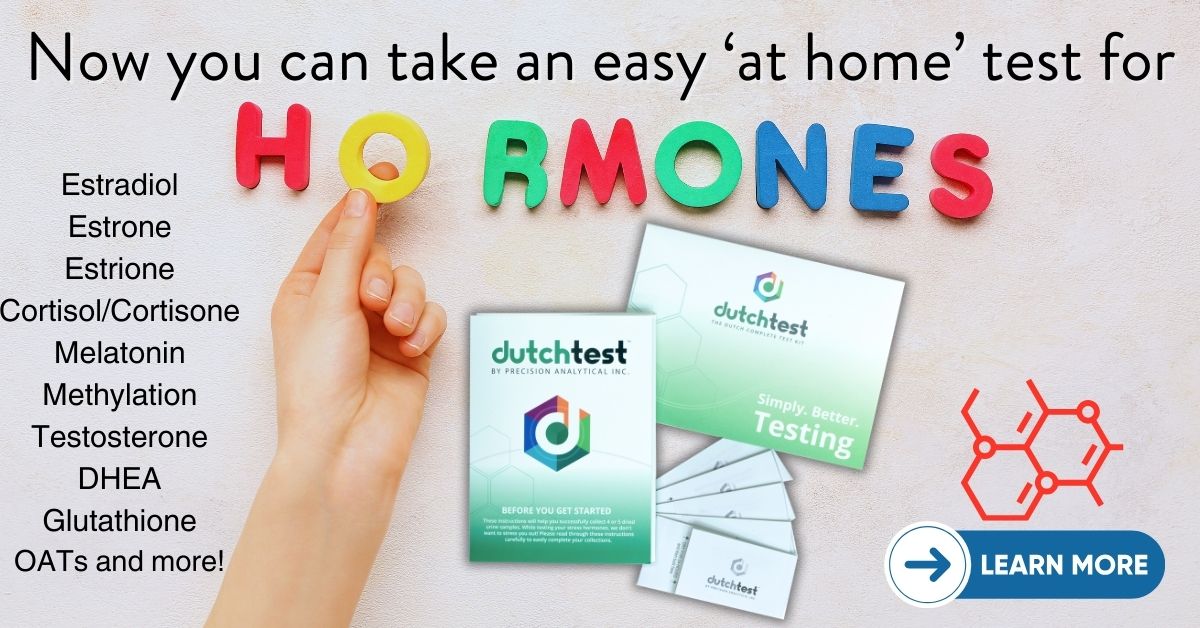What's On This Page?
ToggleIndividuals living with Hashimoto’s thyroiditis frequently encounter a range of challenging symptoms, stemming not only from the primary condition but also from a cascade of nutrient deficiencies that accompany it. Recognizing and addressing these deficiencies can markedly improve one’s quality of life. Here’s a concise guide to the 10 most common nutrient deficiencies in Hashimoto’s, and suggestions for safely incorporating supplements into your regimen.
Why Nutrient Deficiencies Are Prevalent in Hashimoto’s?
People with Hashimoto’s often face nutrient absorption challenges. There are many reasons for this, and these are the top 5:
- Dietary restrictions: Limiting certain foods can inadvertently reduce nutrient intake.
- The ‘Drug Mugging’ Effect: Medications that cause your body to use up (or lose) nutrients – I wrote a book about this topic that is now in about 10 languages worldwide. One of the most potent drug muggers is the category of acid blockers which mug almost everything! And then the statin drugs, they deplete selenium, D, CoQ10 and more! Hundreds of medications are drug muggers – probably all of them!
- Gut health issues: Conditions like low stomach acid (hypochlorhydria) and intestinal permeability can hinder nutrient absorption. Having elevated Indican (see your DUTCH Complete Test if you took one), or having a “leaky gut” will cause this. So can having Celiac, Crohn’s and IBS (Irritable Bowel Syndrome).
- Thyroid hormone imbalance: Insufficient thyroid hormones as in hypothyroidism will affect nutrient extraction from food.
- Poor probiotic status: Having a more pathogenic gut microflora with few friendly microbes will impact your ability to extract nutrients from your food. It will also hinder your ability to make B vitamins and extract minerals from your meals.
Now I’d like to go over the top 10 nutrient deficiencies that most people with Hashimoto’s Thyroiditis have:
Top 10 Nutrient Deficiencies That Most People With Hashimoto’s Thyroiditis have:
-
Selenium
Health Benefits: Selenium is pivotal for thyroid hormone synthesis and antioxidant defense. It can reduce thyroid antibodies and support immune function.
Food Sources: Brazil nuts, seafood, and organ meats are excellent selenium sources.
Testing: Blood selenium levels can be measured, though testing isn’t always routine.
-
Vitamin D
Health Benefits: Essential for immune regulation, bone health, and mood regulation. Vitamin D deficiency is linked to increased autoimmunity and a higher risk of Hashimoto’s.
Food Sources: Fatty fish, egg yolks, and fortified foods. Sun exposure also aids in vitamin D synthesis.
Testing: 25-hydroxyvitamin D test evaluates levels. Supplementation should be based on test results to avoid toxicity.
-
Vitamin B12
Health Benefits: Vital for nerve function, energy production, and DNA synthesis. B12 deficiency can lead to fatigue and cognitive issues.
Food Sources: Found in animal products like meat, fish, poultry, eggs, and dairy.
Testing: Serum B12 levels indicate status. Deficiency often requires supplementation. Gluten intolerance will reduce B12 as well.
-
Iron/Ferritin
Health Benefits: Iron is crucial for oxygen transport and energy metabolism. Ferritin stores iron, and low levels can lead to fatigue and hair loss.
Food Sources: Red meat, poultry, fish, lentils, and fortified cereals.
Testing: Serum ferritin and complete blood count (CBC) tests evaluate iron stores and usage.
-
Thiamine (Vitamin B1)
Health Benefits: Supports energy conversion from food, nerve function, and muscle health.
Food Sources: Whole grains, pork, beans, nuts, and seeds.
Testing: Thiamine levels can be tested, but deficiency signs might prompt supplementation without testing.
-
Zinc
Health Benefits: Important for immune function, wound healing, DNA synthesis, and thyroid hormone metabolism.
Food Sources: Meat, shellfish, legumes, seeds, and nuts.
Testing: Serum zinc levels can be measured. Supplementation should be cautious to avoid copper imbalance.
-
Magnesium
Health Benefits: Involved in over 300 enzymatic reactions, including muscle and nerve function, blood glucose control, and energy production.
Food Sources: Leafy greens, nuts, seeds, and whole grains.
Testing: Serum magnesium tests are available, though they may not always reflect total body magnesium status.
-
Omega-3 Fatty Acids
Health Benefits: Support cardiovascular health, reduce inflammation, and enhance cognitive function.
Food Sources: Fatty fish (salmon, mackerel), flaxseeds, chia seeds, and walnuts.
Testing: Omega-3 index tests measure levels in the blood, guiding supplementation for balance.
-
Probiotics
Health Benefits: Essential for gut health, which influences overall health, immune function, and possibly thyroid function through the gut-thyroid axis.
Food Sources: Fermented foods like yogurt, kefir, sauerkraut, and kombucha.
Testing: No direct test for the need for probiotics, but gut dysbiosis tests can indicate imbalances that probiotics may help.
-
Coenzyme Q10 (CoQ10)
Health Benefits: Acts as an antioxidant and is critical for energy production in cells. May benefit heart health and reduce oxidative stress.
Food Sources: Meat, fish, nuts, and some oils.
Testing: CoQ10 levels can be tested, especially relevant for those on statin medications, as statins can lower CoQ10 levels.
Navigating Supplementation and Testing
While nutrients like selenium, zinc, thiamine, magnesium, omega-3 fatty acids, and probiotics can generally be supplemented safely without specific tests, it’s crucial to monitor your body’s response and consult with a healthcare provider, especially if you’re dealing with underlying health conditions or taking medications.
For nutrients such as vitamin D, B12, and iron where over-supplementation poses certain risks, obtaining accurate blood levels through testing is essential. I’m thinking of how vitamin D can increase calcium and lead to hypercalcemia. It happens with excessive D supplmentation, read more about that in my other article, Calcium and Hypercalcemia: Treatment Options.
Also with iron, it can tear up the gut! And it can cause severe constipation in excess. Read my article, 7 Impressive Remedies for Constipation. You will also want to take 10 minutes more to read my article, 5 Reasons for Iron Deficiency Anemia, and How it Relates to Thyroid Disease.
I believe that testing yourself will ensure that your supplementation regimen is both safe and effective.
Summary
Addressing nutrient deficiencies in autoimmune thyroid disease (Hashimoto’s thyroiditis) is a simple way to improve how you feel day-to-day, and manage your symptoms more effectively. By focusing on a balanced diet rich in micronutrients or dietary supplements for additional support (with professional guidance), you can make significant strides towards feeling like you’re you again!
Incorporating a balanced diet rich in these nutrients, especially one that is keto friendly would be great. Also, consider targeted supplementation to really benefit. I think that with #8, 9 and 10 especially because it’s impossible to really eat your way to a healthy level.
For those of you who find the topic of nutrient depletions in Hashimoto’s thyroiditis and their impact on our health fascinating, especially in the context of medication use, I’ve explored this subject in depth in my book, “Drug Muggers.” It delves into how certain medications can deplete essential nutrients from our bodies and what we can do to replenish them.
If you’re looking to deepen your understanding of drug-nutrient interactions and want practical advice on maintaining your nutritional balance, “Drug Muggers” might be just what you’re looking for. It’s available at bookstores nationwide and on Amazon. I hope it serves as a helpful resource on your journey to optimal health. Now, here’s a word about testing.
Remember, while supplements can offer a crucial support line, they’re most effective when part of a comprehensive approach that includes dietary changes, stress management, and regular physical activity tailored to your current health status and limitations.

Suzy Cohen, has been a licensed pharmacist for over 30 years and believes the best approach to chronic illness is a combination of natural medicine and conventional. She founded her own dietary supplement company specializing in custom-formulas, some of which have patents. With a special focus on functional medicine, thyroid health and drug nutrient depletion, Suzy is the author of several related books including Thyroid Healthy, Drug Muggers, Diabetes Without Drugs, and a nationally syndicated column.



